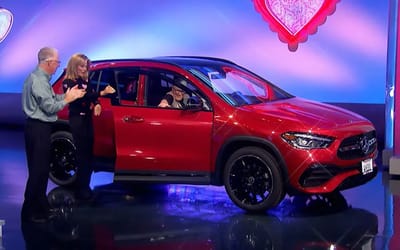Scientists discover cars of the future might literally run on rust
Published on Sep 30, 2025 at 8:56 AM (UTC+4)
by Jason Fan
Last updated on Sep 30, 2025 at 12:35 PM (UTC+4)
Edited by
Emma Matthews
Cars of the future, including hydrogen cars, might literally run on green rust, a substance most people associate with old ships or junkyard clunkers.
While hydrogen power has long been a dream fuel for clean energy, one of the biggest problems has always been how to store it and release it efficiently.
Today, that challenge has researchers turning to a surprising villain in every car enthusiast’s life: rust.
Yes, the same flaky stuff that eats away at fenders could actually help build the clean energy systems of tomorrow.
SBX CARS – View live supercar auctions powered by Supercar Blondie
A specific kind of rust is needed
At the heart of the research is sodium borohydride, a material that can release hydrogen when it comes into contact with water.
In case you’re wondering what hydrogen is good for, remember that certain carmakers like Toyota are currently working on hydrogen-powered cars.

While releasing hydrogen is great for clean energy, the catch is that the process usually requires pricey catalysts made from precious metals like platinum to speed things up.
That’s where Japan’s Research Center for Materials Nanoarchitectonics (MANA) is shaking things up with its discovery that rust might be just as good.
To be clear, it’s not just any type of rust that works.
Specifically, it needs to be ‘green rust’, and it isn’t the crumbly orange stuff you find on old bicycles.
It’s a strange, greenish mineral that forms in seawater and low-oxygen conditions.
Normally, it’s considered unstable and not particularly useful, but MANA scientists figured out a way to give it superpowers.
By treating green rust with a copper chloride solution, the rust develops tiny copper clusters that become hotspots for hydrogen production.
Even better, the green rust itself can soak up sunlight, boosting the reaction even more.
In testing, this rusty catalyst performed almost as well as traditional precious metals, with the potential to beat them one day.
Hydrogen cars that run on rust may be the cars of the future
But what’s the hype?
Well, for one, green rust is cheap, abundant, and relatively easy to produce.
Seawater, iron, and steel are everywhere, and recycling old materials could make the process even more sustainable.
Imagine this: when cars reach the end of their lives, instead of being abandoned in car graveyards, their steel bodies could be transformed into catalysts that help power the next generation of hydrogen vehicles.

That’s the ultimate recycling loop.
Of course, this isn’t happening tomorrow.
Hydrogen fuel technology has been studied for nearly a century, and while it’s promising, scaling it up takes time.
Still, with electric cars paving the way for cleaner transportation, hydrogen could be the next step.
After all, hydrogen cars are even cleaner than EVs, and if the key ingredient for the cars of the future is something as ordinary as rust, this could be truly revolutionary.
DISCOVER SBX CARS: The global premium car auction platform powered by Supercar Blondie
Jason joined the editorial team at Supercar Blondie in April 2025 as a Content Writer. As part of the growing editorial team working in Australia, and in synergy with team members in Dubai, the UK, and elsewhere in the world, he helps keep the site running 24/7, injecting his renowned accuracy and energy into every shift.




